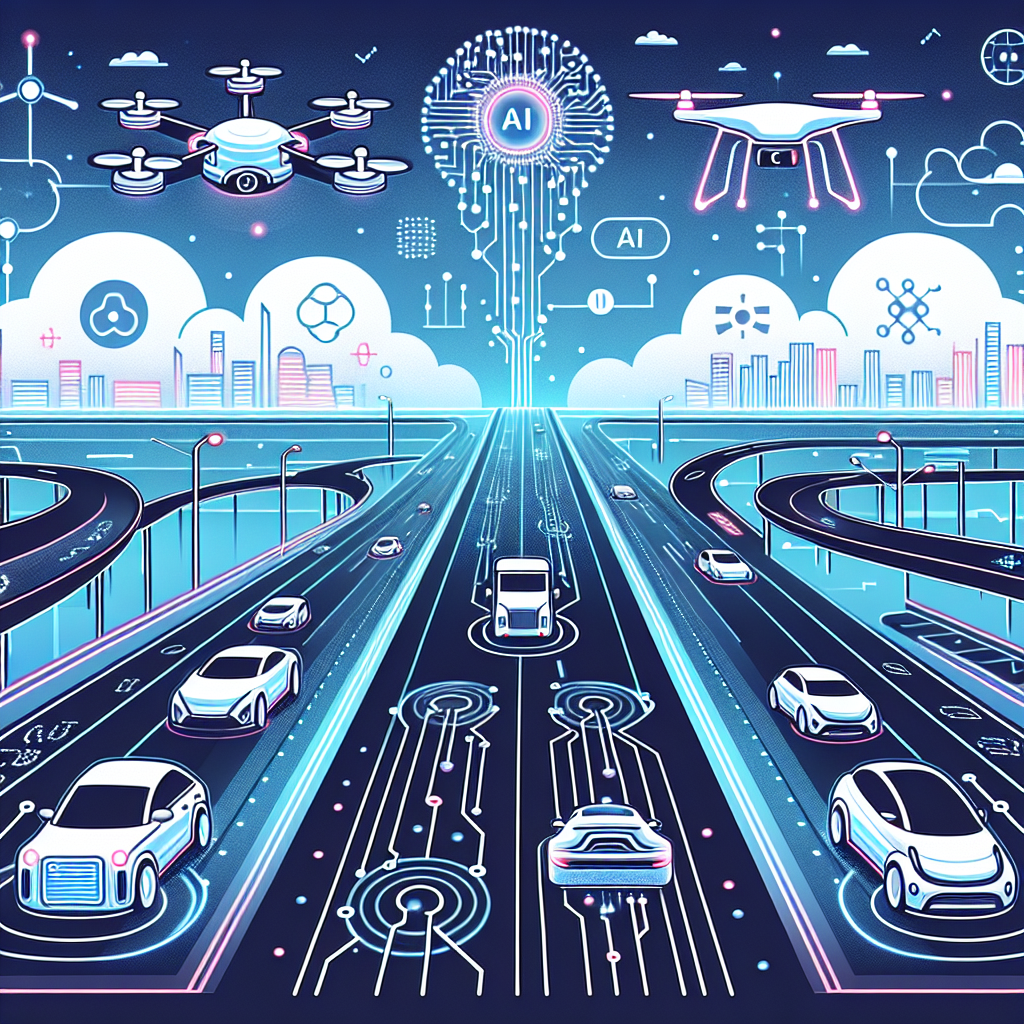Artificial Intelligence (AI) has already made significant advancements in various sectors, including transportation. From self-driving cars to intelligent traffic management systems, AI is revolutionizing the way we move from one place to another. As technology continues to evolve, the integration of AI in transportation is only expected to grow in the future.
The Future of AI Integration in Transportation
1. Self-Driving Cars
One of the most talked-about advancements in transportation is the development of self-driving cars. Companies like Tesla, Waymo, and Uber are investing heavily in developing autonomous vehicles that can navigate roads without human intervention. These self-driving cars use AI algorithms to analyze data from sensors, cameras, and GPS to make decisions on the road.
The future of self-driving cars is promising, with the potential to reduce accidents, improve traffic flow, and provide mobility solutions for individuals who are unable to drive. As AI technology continues to improve, we can expect to see more self-driving cars on the roads in the coming years.
2. Intelligent Traffic Management Systems
AI is also being used to develop intelligent traffic management systems that can optimize traffic flow, reduce congestion, and improve overall transportation efficiency. These systems use AI algorithms to analyze real-time data from cameras, sensors, and other sources to make decisions on traffic control, signal timing, and route optimization.
In the future, we can expect to see more cities adopting intelligent traffic management systems to alleviate congestion and improve the overall transportation experience for commuters. These systems will be able to adapt to changing traffic patterns, accidents, and events in real-time, making transportation more efficient and reliable.
3. Predictive Maintenance
AI is also being used in transportation for predictive maintenance of vehicles and infrastructure. By analyzing data from sensors and other sources, AI algorithms can predict when a vehicle or a piece of infrastructure is likely to fail and schedule maintenance before it happens.
This proactive approach to maintenance can help prevent breakdowns, reduce downtime, and extend the lifespan of vehicles and infrastructure. In the future, we can expect to see more transportation companies adopting AI-powered predictive maintenance solutions to improve the reliability and efficiency of their operations.
4. Smart Transportation Systems
AI is also being used to develop smart transportation systems that can integrate various modes of transportation, such as buses, trains, bicycles, and ride-sharing services, into a seamless and interconnected network. These systems use AI algorithms to optimize routes, schedules, and pricing to provide commuters with the most efficient and cost-effective transportation options.
In the future, we can expect to see more cities adopting smart transportation systems to reduce traffic congestion, improve air quality, and provide more sustainable transportation solutions. These systems will be able to adapt to changing demand, events, and conditions in real-time, making transportation more flexible and responsive to the needs of commuters.
5. Personalized Transportation Services
AI is also being used to develop personalized transportation services that can tailor transportation options to individual preferences and needs. By analyzing data on commuting patterns, preferences, and behaviors, AI algorithms can provide commuters with personalized transportation recommendations, such as the best route, mode of transportation, and time to travel.
In the future, we can expect to see more transportation companies offering personalized services that cater to the unique needs of each commuter. These services will be able to adapt to changing preferences, events, and conditions to provide a more customized and enjoyable transportation experience.
FAQs
Q: Will AI replace human drivers in the future?
A: While self-driving cars are expected to become more prevalent in the future, it is unlikely that AI will completely replace human drivers. AI is more likely to assist human drivers by providing advanced safety features, navigation assistance, and predictive maintenance solutions.
Q: How will AI improve traffic congestion?
A: AI can improve traffic congestion by optimizing traffic flow, signal timing, and route optimization. Intelligent traffic management systems can analyze real-time data to make decisions that reduce congestion, improve traffic flow, and provide more efficient transportation options for commuters.
Q: What are the benefits of AI integration in transportation?
A: AI integration in transportation can provide a wide range of benefits, including improved safety, reduced accidents, enhanced traffic management, personalized transportation services, and predictive maintenance solutions. AI can also help reduce congestion, improve air quality, and provide more sustainable transportation options for commuters.
In conclusion, the future of AI integration in transportation is bright, with advancements in self-driving cars, intelligent traffic management systems, predictive maintenance solutions, smart transportation systems, and personalized transportation services. As technology continues to evolve, we can expect to see more AI-powered solutions that improve the safety, efficiency, and reliability of transportation systems around the world.

